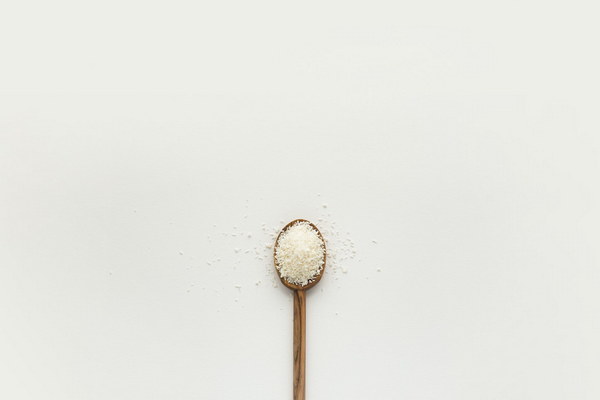Nourishing Your Spleen A Journey to Optimal Health
The ancient Chinese philosophy of Traditional Chinese Medicine (TCM) emphasizes the importance of balancing the body's internal organs for overall well-being. One of the most critical organs in this balance is the spleen, which plays a vital role in digestion, absorption, and transportation of nutrients. In this article, we will delve into the significance of nurturing your spleen and explore various strategies to achieve optimal health.
The spleen, often referred to as the stomach's helper, is responsible for transforming food into energy and nutrients, which are then distributed throughout the body. When the spleen is functioning optimally, we experience a healthy immune system, strong digestion, and a sense of vitality. However, when the spleen is weakened, we may experience symptoms such as fatigue, bloating, and poor digestion.
Here are some essential tips to help you nourish your spleen and improve your overall health:
1. Eat a balanced diet: Incorporate a variety of foods rich in vitamins, minerals, and antioxidants into your diet. Focus on whole grains, lean proteins, fruits, vegetables, and healthy fats. These foods provide the necessary nutrients to support your spleen's functions.
2. Choose the right foods: Certain foods are particularly beneficial for nourishing the spleen. These include:
- Sweet potatoes: High in vitamins A and C, sweet potatoes aid in digestion and boost the immune system.
- Quinoa: A gluten-free grain, quinoa is rich in fiber, protein, and B vitamins, which support the spleen.
- Bananas: High in potassium and magnesium, bananas help to regulate blood sugar levels and improve digestion.
- Ginger: This spicy root has anti-inflammatory properties that can aid in digestion and spleen health.
- Millet: A gluten-free grain, millet is rich in protein, fiber, and vitamins, which support the spleen's functions.

3. Avoid spleen-damaging foods: Some foods can weaken the spleen and lead to digestive issues. It's best to limit or avoid:
- Refined sugars and carbohydrates: These foods can cause blood sugar fluctuations and disrupt the spleen's functions.
- Processed foods: High in artificial additives and preservatives, processed foods can harm the spleen and lead to digestive problems.
- Cold and raw foods: These can be difficult to digest and may weaken the spleen.
4. Manage stress: Stress can negatively impact the spleen and its functions. Incorporate stress-reducing activities into your daily routine, such as meditation, yoga, or deep-breathing exercises.
5. Get adequate sleep: Sleep is crucial for maintaining a healthy spleen. Aim for 7-9 hours of quality sleep each night.
6. Exercise regularly: Physical activity promotes good digestion and strengthens the spleen. Engage in moderate exercise, such as walking, cycling, or swimming, for at least 30 minutes a day.
7. Consider herbal remedies: Certain herbs can help support the spleen's functions. Consult with a healthcare professional before taking any herbal supplements, as they may interact with other medications or health conditions.
By following these tips and incorporating them into your daily routine, you can help nourish your spleen and experience improved health and vitality. Remember, the key to maintaining a healthy spleen is a balanced approach that includes diet, lifestyle, and stress management.
In conclusion, the spleen is a vital organ that requires proper care and attention to maintain optimal health. By adopting a balanced diet, managing stress, and incorporating other healthy habits, you can support your spleen and enjoy a better quality of life. Nourishing your spleen is a journey that leads to overall well-being and a healthier you.









